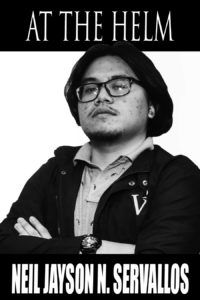DIG AND dig for dirt as he may, President Duterte can never force the Catholic Church down to her knees. The anti-cleric Duterte launched new tirades against Church leaders during a meeting last month with the families of the Special Action Force (SAF) troopers who perished during the 2015 Mamasapano massacre.
He challenged Catholic bishops, whom he accused of sexual indiscretions, to resign with him–calling the Church “full of sh*t.”
Duterte accounts these instances of clerical misdemeanors by skimming through the tell-all book of late investigative journalist Aries Rufo, “The Altar of Secrets.”
These ill-educated rants show that Duterte’s adversarial demeanor toward the Church– which has rendered him ill-disposed toward legitimate criticism. It was Rufo himself who said that his book did not seek to destroy the Church, but rather to help rebuild it by checking the shortcomings of some priests and bishops.
For one, these cases have been dealt with exhaustively by the Holy See and the Apostolic Nuncio to the Philippines. Pending cases are closely monitored by the National Tribunal of Appeal set up nine years ago by the Catholic Bishops’ Conference of the Philippines under canon law expert and Thomasian Archbishop Emeritus Oscar Cruz. The tribunal handles cases of errant priests.
The Church reserves its right to criticize state affairs and check government excesses, especially with a president that has no regard for human rights and has no moral ascendancy.
Duterte, who has confessed that he had killed four men mano a mano, has allowed thousands of killings (and counting) to take place under his watch so far; he has supported a rubber- stamp Congress that allows him anything-goes policy-making; and he has outspokenly declared that he is a dictator. He has in fact created a government that has drifted farther and farther away from the constitutional ideal of a vibrant and inclusive democracy.
If the Church, which in retrospect played the pivotal role in deposing the Marcos dictatorship, does nothing amid the sorry state of affairs happening under Duterte’s watch, then the freedoms won by the Filipino people in 1986 will be compromised.
The separation of Church and state, in contrast to the jerrybuilt definitions of today’s statesmen and lawmakers, does not imply that the Church is not allowed intrusion into political affairs and on the flipside, no one is stopping the government in meddling in Church affairs.
The principle simply means that the country shall have no state religion.
The Palace and Filipino prelates have had their fair share of quarrels. It can be recalled that during Emilio Aguinaldo’s time, his revolutionary government fought for a Philippine Church independent of the Holy See, which was contained by the Church by opening seminaries for native Filipinos and the appointment of the first Filipino bishop, Jorge Barlin of Bicol.
The Church was instrumental in the ousting of dictator Ferdinand Marcos and former president Joseph Estrada. And during Fidel Ramos’ time, late Jaime Cardinal Sin led the opposition to the former’s last-minute plans to amend the Constitution, which then led critics to urge Sin to settle the Monte de Piedad fiasco first.
But during the communist-ridden presidencies of Manuel Roxas, Elpidio Quirino and Ramon Magsaysay, the Church became a key participant in thwarting attempts of insurrection by communists through campaigns it launched for the faithful, according to UST History chairman Augusto de Viana.
The Church also became entangled during the Gloria Macapagal-Arroyo presidency. Benigno Aquino III’s term was also a rough time for the Church as the Reproductive Health Law, which the Church leaders had opposed, was passed by both houses of Congress.
Today, Church leaders who have spoken out against the sorry state that Duterte has put the country in have reportedly been largely ignored, in what some scholars and critics say as “a loss of vaunted influence” over Filipinos.
Some even say that critical thinking or the “age of political correctness” has shaken Catholic influence, to which I say there can never be enough force in the world to challenge the political and moral clout of the Church.
The President cannot discard the Filipino people’s centuries-old, yet not antiquated, abidance with the Catholic faith, its magisterium and moral teachings.
The Church has looked after the poor and the marginalized and even led grass-roots collectives into liberation from social injustices in rural parts of the country. It has fostered compassion toward drug abusers by rehabilitation and pastoral assistance, taking in hundreds into the care of dioceses and convent homes.
And the President has done nothing so far but steer the country into the sad, chaotic, and bloody state it is immersed in now.
As the Catholic Church has declared 2018 the Year of the Clergy and Consecrated Persons, Filipino Catholics should support Church leaders in disproving Duterte’s bluster that the Church has no more relevance wrong.
Based on a 2015 nationwide survey by consultancy firm EON, the Church remains the most trusted institution in the country. The survey shows 73 percent of Filipinos trust the Catholic Church more than the academe (51 percent), media (32 percent), and government (12 percent).
If the Church is able to cultivate this trust among Filipinos, it may again return to the times of Cardinal Sin, when the Church had strong moral and political influence, when the Church’s opinion was widely heeded. And when presidents feared and respected its authority.













